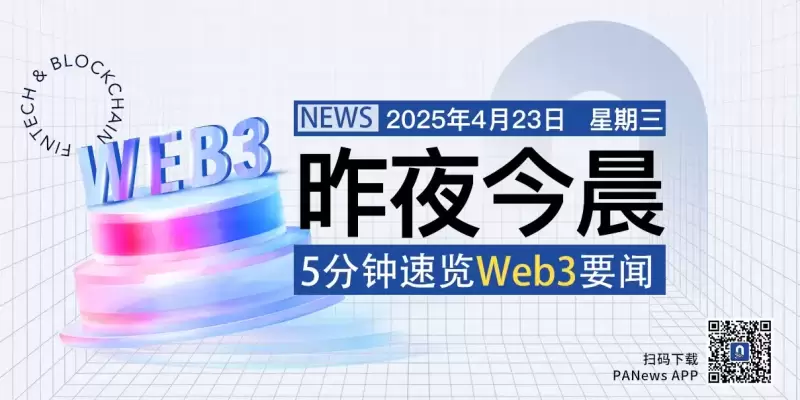 |
|
 |
|
 |
|
 |
|
 |
|
 |
|
 |
|
 |
|
 |
|
 |
|
 |
|
 |
|
 |
|
 |
|
 |
|
Cryptocurrency News Articles
Shariah-compliant cryptocurrencies are a growing component within Islamic finance
Mar 31, 2025 at 12:00 pm
They offer Muslim investors blockchain assets aligned with Islamic law. These digital assets are designed to avoid conflicts with key Shariah principles.

In the realm of Islamic finance, a burgeoning component is that of Shariah-compliant cryptocurrencies. These offer Muslim investors a way to participate in blockchain assets consistent with Islamic law. The tokens are designed to avoid conflict with key principles such as riba (interest), gharar (excessive risk), and haram (forbidden) sectors like gambling.
Halal crypto projects link conventional Islamic finance with decentralized technologies, meeting rising demand for ethical financial solutions. The overall Islamic financial system is a market worth over $2 trillion globally.
Shariah-compliant tokens prioritize transparency, asset backing, and real-world utility, aligning with Islamic finance values such as shared risk/return and ethical business practices.
What is Halal Cryptocurrency (Shariah-Compliant)?
Not all digital assets meet Shariah-compliant (Halal) standards. Specific requirements include:
• Ethical criteria in the asset’s function and management.
• A project’s core utility should be productive or socially beneficial. Direct links to prohibited industries, like interest-based lending or gambling, typically disqualify an asset.
• Tangible asset backing or clear real-world utility adds credibility. Projects tied to physical goods or services are often preferred over purely speculative tokens.
• Shariah advisory boards, more often including Islamic scholars, review and endorse these projects, providing assurance for investors seeking compliant assets.
Related: Nomura’s Laser Digital Secures Crypto License in Abu Dhabi
Examples of Shariah-Compliant Crypto Projects & Platforms
Several projects illustrate the possibilities within Shariah-compliant blockchain development:
• OneGram was among the first to gain recognition, utilizing a gold-backed model. Each OneGram token is supported by at least one gram of physical gold held in reserve, offering price stability and reducing purely speculative trading appeal.
• Another notable project is Islamic Coin (ISLM), which is based on the Haqq blockchain platform. Through its integrated Evergreen DAO, a portion of every ISLM transaction automatically supports various beneficial and sustainable causes. This ecosystem’s design also prohibits the creation of financial products considered unethical under Shariah law, while aiming to support compliant innovation.
• FICE (Fasset Islamic Crypto Exchange) operates as a licensed exchange in Bahrain, licensed by the country’s central bank and exclusively dealing in Shariah-compliant virtual assets. The exchange applies filters based on religious and ethical norms to screen listed tokens, allowing Muslim investors to trade crypto assets with greater confidence in their compliance.
How is Adoption of Shariah-Compliant Crypto Growing?
Acceptance and development of Shariah-compliant digital asset services appear to be expanding, especially across Muslim-majority countries. Nations including Malaysia, Indonesia, UAE, and Saudi Arabia are reportedly exploring or establishing legal and regulatory frameworks that may apply specifically to Halal digital assets.
This governmental interest aligns with increasing consumer demand for ethical investment products within these regions.
Some exchanges have introduced Shariah screening tools or filters for their listed assets. Others have partnered directly with Islamic scholars or advisory firms to vet specific token offerings for compliance.
Related: UAE DeFi Transactions Surge 74%: A Young Nation Embraces Decentralization
Fintech startups globally are also building tools specifically tailored for Muslim users. From specialized digital wallets to trading platforms, developers focus on achieving accessibility, compliance, and transparency according to Shariah principles.
These moves indicate Shariah-compliant crypto is moving beyond a small niche, representing a growing segment with significant global potential.
The information presented in this article is for informational and educational purposes only. The article does not constitute financial advice or advice of any kind. Coin Edition is not responsible for any losses incurred as a result of the utilization of content, products, or services mentioned. Readers are advised to exercise caution before taking any action related to the company.
Disclaimer:info@kdj.com
The information provided is not trading advice. kdj.com does not assume any responsibility for any investments made based on the information provided in this article. Cryptocurrencies are highly volatile and it is highly recommended that you invest with caution after thorough research!
If you believe that the content used on this website infringes your copyright, please contact us immediately (info@kdj.com) and we will delete it promptly.
-

-

-

-

-

-

-

-

-

- US Securities and Exchange Commission charges man who allegedly created crypto scheme that swindled 90,000 people out of $200M
- Apr 23, 2025 at 12:30 pm
- The US Securities and Exchange Commission and federal prosecutors have charged a man they allege created a crypto scheme that swindled 90,000 people out of $200 million





























































